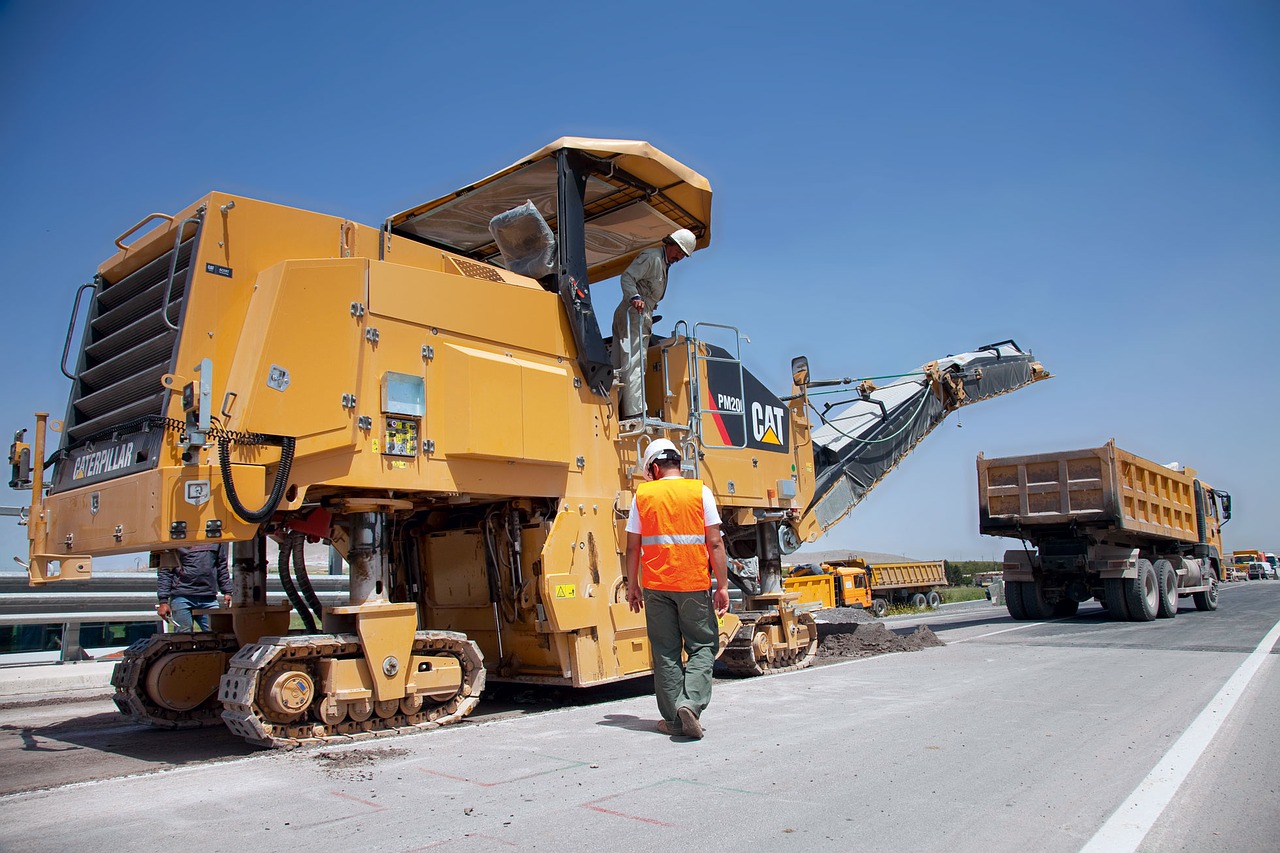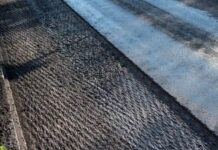Asphalt paving, as much as we wish it could, does not last forever. This is a fact we all have to accept, that at one point or another in an asphalt pavement’s lifespan, it is going to get distressed, uneven, or fully damaged and in need of proper repair and maintenance. There are various steps and techniques utilized in asphalt repair and maintenance, and milling is a vital technique. It is usually one of the first steps involved in asphalt repair making it a key tool in asphalt maintenance. In this blog post, we discuss everything you need to know about milling including, what it is, how it’s done, and some of its applications.
What Is Milling?
Milling which is also known as cold planing or profiling is the controlled removal of asphalt pavement to a specified and even depth, using specialized equipment, without disturbing the underlying sub-base. This technique is mainly utilized when asphalt needs to be adjusted to the desired profile, whether to correct distress or drainage issues, or new asphalt needs to be laid without increasing the height of the road.
This technique has become the go-to method for most contractors for asphalt removal as it provides a clean, and quicker way to reclaim asphalt as compared to the traditional methods of excavation. Furthermore, milling provides you with a precise method of removing asphalt. Thus, whether you were aiming for a partial removal or a full-depth removal, you can do it all with milling.
How Does the Milling Process Work?
 The milling process involves grinding the asphalt into small aggregate using specialized equipment called milling machines or cold planners. One thing you should note about these machines is they come in various sizes to handle different jobs. They have a rotating drum whose exterior is wrapped in scrolls of tool holders, which hold the removable carbide cutters that cut the pavement. One thing to note is that the spacing between the tool holders will affect the end surface of the road with tighter spacing giving a smoother finish.
The milling process involves grinding the asphalt into small aggregate using specialized equipment called milling machines or cold planners. One thing you should note about these machines is they come in various sizes to handle different jobs. They have a rotating drum whose exterior is wrapped in scrolls of tool holders, which hold the removable carbide cutters that cut the pavement. One thing to note is that the spacing between the tool holders will affect the end surface of the road with tighter spacing giving a smoother finish.
The scrolls of tool holders are positioned in a way that moves the milled asphalt aggregate to the center of the rotating drum, where they are dropped off onto the milling machine’s conveyor system through the rotation of the drum. The conveyor system then moves the aggregate into a dump truck, where it is collected and stored before being taken off for recycling.
Applications of Milling
Mill and Fill
This is one of the main applications of milling. When a new asphalt needs to be laid, milling is used to efficiently remove the top layer of asphalt leaving a smooth level surface for the new asphalt to adhere to.
Recycling
The quick and clean process of milling has made asphalt one of the most reused and recyclable construction materials. Milling is the first process in the asphalt recycling process. It grinds up the asphalt into aggregate, which can then be reused as a base or recycled into asphalt mixes.
Correct Asphalt Distresses
Milling is used to quickly and cleanly remove areas distressed through cracking, raveling, shoving, bleeding, rutting, and areas damaged by accidents or fires without disturbing the sub-base.
Edge Milling Before Overlay
While resurfacing your asphalt is a great idea, it can cause height differences between resurfaced pavement and other connecting pavements. Furthermore resurfacing, causes manhole covers and grates covering catch basins to sink lower and curbs and gutters to become shallower. However, with milling, specifically, edge milling before overlays, these pavement transitions can be smoothed and curbs, manhole covers, and grates can be maintained at proper heights.
To resolve drainage Issues
New drainage issues can crop up and mandate the need to reshape the asphalt or cut drainage swales to allow proper drainage.
Creating Rumble Strips
Milling is currently the optimal way to create rumble strips in our roads today. Mainly because milled-in rumble strips are more audible and produce higher vibration levels making them better and prevent at keeping drivers alert.
Thus if you require an excellent milling contractor for whatever purpose, we have the very best right here at Commonwealth
Address
Commonwealth Paving, 136 Outerloop, Louisville, Kentucky 40214
Phone: 502-459-7283, Fax: 502-456-2678
Opening Hours
| Monday | 9:00 AM – 5:00 PM |
| Tuesday | 9:00 AM – 5:00 PM |
| Wednesday | 9:00 AM – 5:00 PM |
| Thursday | 9:00 AM – 5:00 PM |
| Friday | 9:00 AM – 5:00 PM |
| Saturday | Closed |
| Sunday | Closed |







